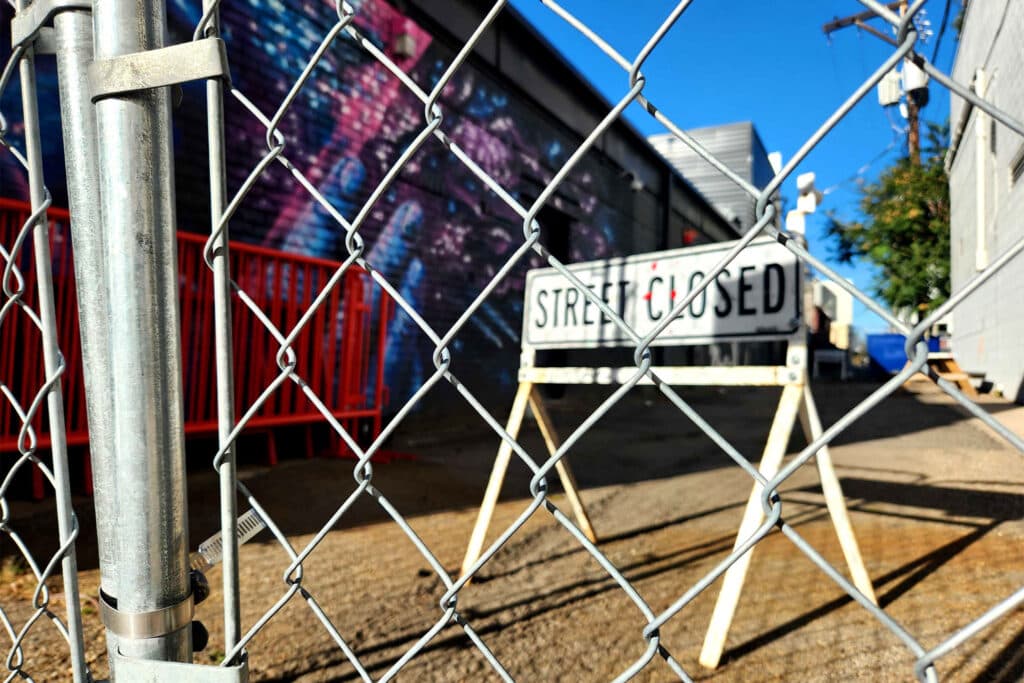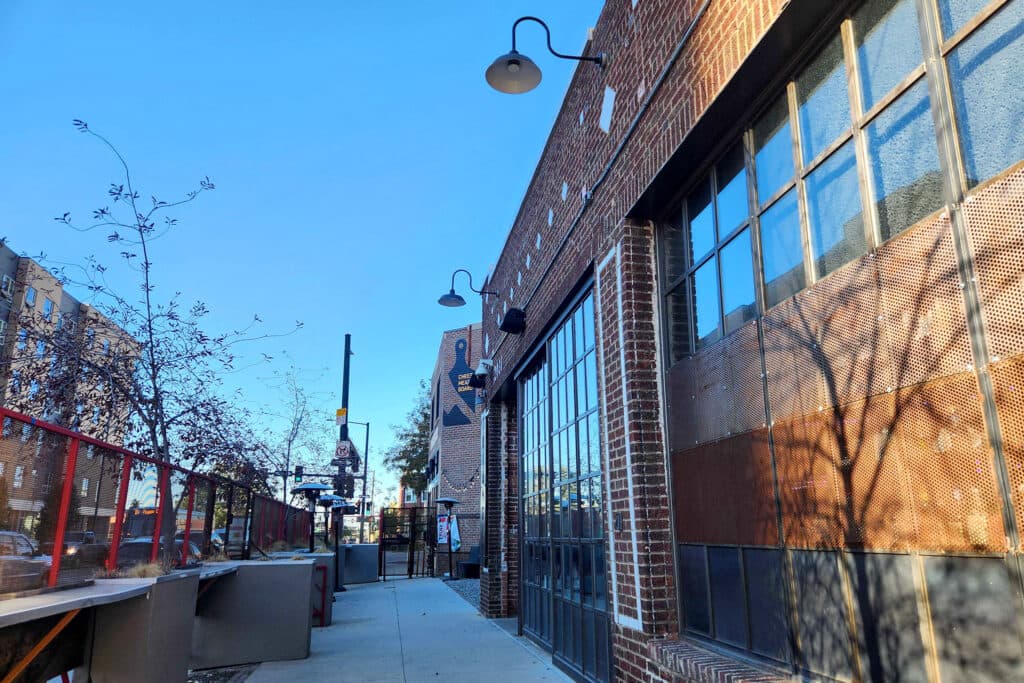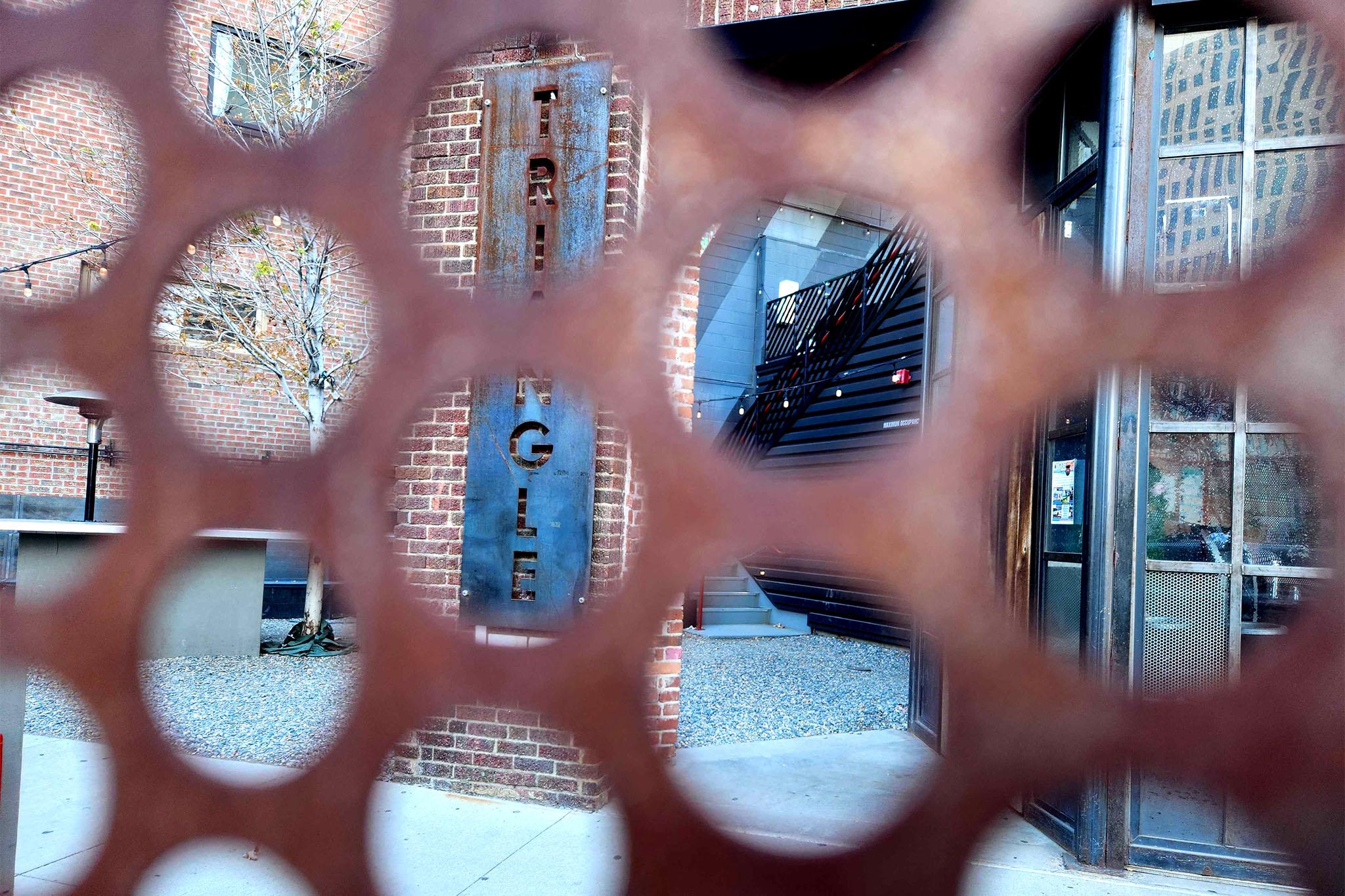The owners of Triangle Bar Denver, one of the city's oldest LGBTQ bars, abruptly closed their doors on Thursday.
Visitation had dwindled in recent months, owners said in a written message sent to patrons. Management blamed nearby encampments of unhoused people as the main driver.
"We confirmed that 75% of you are visiting us less frequently with over 60% citing safety concerns due to the encampments," owners wrote. "We have been injecting funds regularly into the bar just to keep the doors open while pressuring the city to take corrective action."
The closure marks the end of another chapter for the storied bar that opened in the late '70s. It gained popularity among the city's leather and kink scene, and served as a safe space during the height of the AIDS crisis, said Sean O'Grady, a previous co-owner.
"It was a wild place," O'Grady added. "And I think it was one of the few bars that actually cared about being part of the community and being there for them."
The original business shuttered in the late 2000s after the then-owner died. Ownership changed hands a few times since then. In 2017, a team of business partners, including billionaire Scott Coors of Coors Brewing, purchased the space and reopened it as an LGBTQ bar and restaurant.
The revived space hosted a mix of parties, performances, charity events and brunches featuring "elevated food," O'Grady said. Events like its annual Pride Block Party and weekly beer busts drew large crowds.
But the COVID-19 pandemic cut its momentum. The business took a hit from coronavirus closures and restrictions in 2020 and the bar struggled to become profitable after that.
"It did not break even for sure after that," said O'Grady, who left the ownership team in 2022. "But many bars and restaurants are coming back to 2019 levels now."

Its location, 2036 N. Broadway, is near several organizations that provide services to unhoused residents downtown. Encampments have lined the streets near the bar for years.
Their populations grew significantly in recent months, said Coors, one of the owners. Staff frequently witnessed drug use, human waste deposits and violence nearby, he said.
"It was a mess," Coors said. "And our customers didn't want to walk through it."
Coors and other owners requested extra assistance from the city months ago, but struggled to get a response, he said. The city conducted a sweep on Sept. 27. But the camps returned shortly after.
"(Mayor) Hancock did nothing to address the problem, and the new mayor came in on all these promises of doing it, did one sweep finally after we begged them for two months and then turned their back on it the next day," Coors said.
Mayor Mike Johnston's office said in a statement that teams from the administration met with the owners of Triangle to listen to concerns and were working to find housing for residents of nearby encampments before the closure announcement.
Addressing homelessness has been a key issue for the new administration. Johnston declared a state of emergency around the issue and pledged to get 1,000 people off the streets and into housing by the end of the year. Since then, the administration has conducted several large sweeps.
"While we acknowledge the progress made so far, we also understand the urgency of the situation and are fully aware of the challenges we face in meeting our ambitious goal," a spokesman for Johnston said in a statement.
On Thursday, the day of Triangle's closure announcement, the large encampments around the bar had disappeared. The mayor's office did not comment on whether an official sweep took place or what drove the change.
Coors said he believed another sweep took place, but he was not optimistic the encampment would stay gone.
Past managers said the bar's closure was likely tied to more than just unhoused people living nearby. COVID-19 recovery was slow and the bar's distant location from other LGBTQ community spaces didn't help, said O'Grady, one of the former co-owners.
"I think that 95% of (unhoused) neighbors over there were harmless and they're just trying to live their lives," he said. "There are unhoused people on Colfax. There are unhoused people in LoDo. There are unhoused people everywhere and other places are thriving again."
Other downtown businesses have seen a slow recovery from COVID-19. Foot traffic dropped sharply in 2020, but bounced back to pre-pandemic levels for the first time this summer, according to research from the Downtown Denver Partnership.
Downtown Denver's overall pedestrian traffic in July 2023 was 91% of the overall pedestrian traffic in July 2019. But the resurgence has been concentrated in a few areas, said Britt Diehl with DDP.
"It tends to be concentrated on the 16th Street Mall and near anchors like Union Station and the performing arts complex," Diehl said. "Triangle Bar does kind of sit on an island that's not super walkable."

Triangle's closure is one example of how the homelessness crisis is impacting business, said Darrell Watson, city councilman for District 9, which includes Triangle.
"What we are seeing is a reduction of folks going to businesses that are surrounded by encampments, good, bad, or otherwise. That is a fact," Watson said, adding that he plans to announce new targeted grants to help small businesses in similar situations to Triangle.
"The city is not leading as we should with finding housing and support for folks living unsheltered, but also making sure our businesses and our residents are able to live and thrive in our city," Watson said.
Triangle said its closure would last "indefinitely," according to its emailed statement. Event and brunch ticket holders will recieve refunds.
The bar will host a final beer bust on Oct. 8 starting at noon.
"We worked hard to provide a safe and welcoming place for all members of our community to celebrate, play, and give back to others for the last six years, despite some tremendous obstacles," the owners wrote in their closure email. "Thanks from the bottom of our hearts to those of you who have supported us through thick and thin, we appreciate you and wish you all the best."












